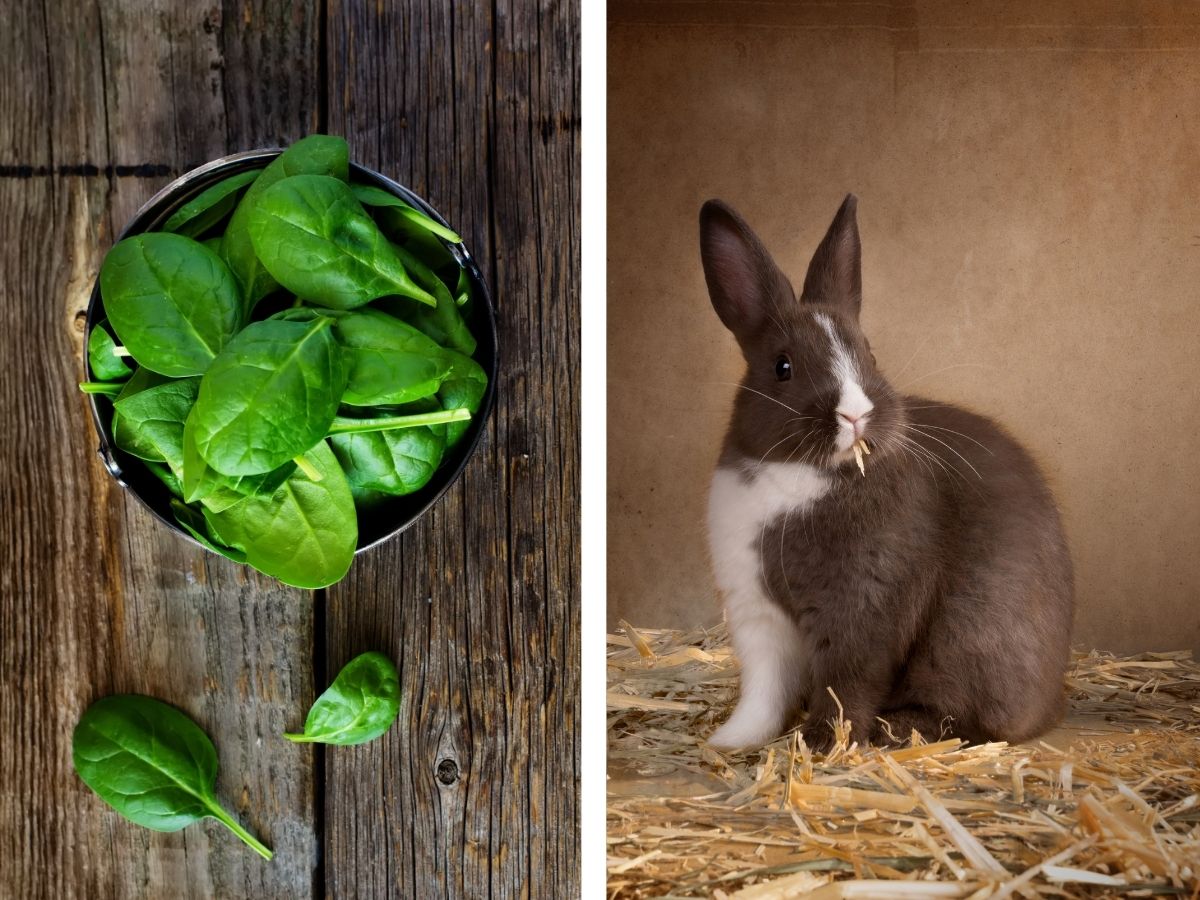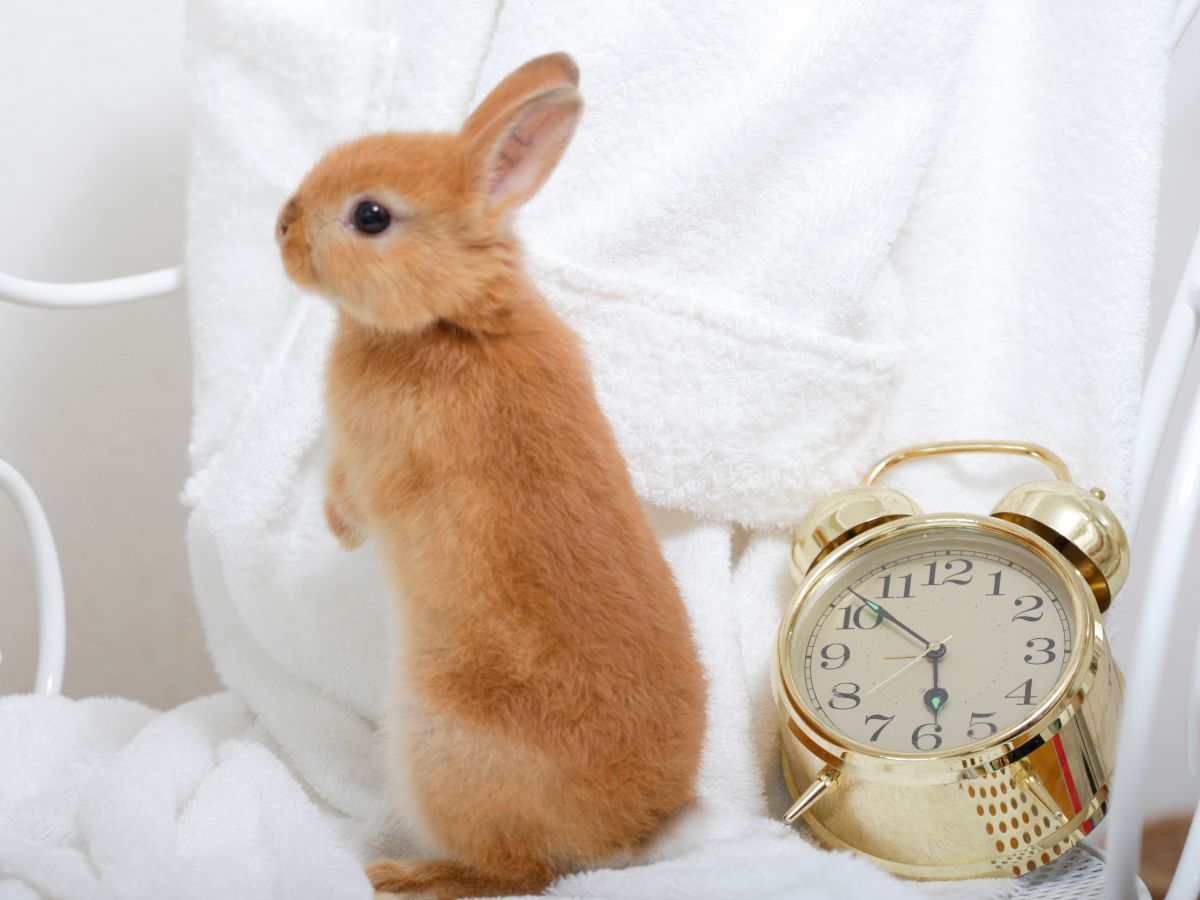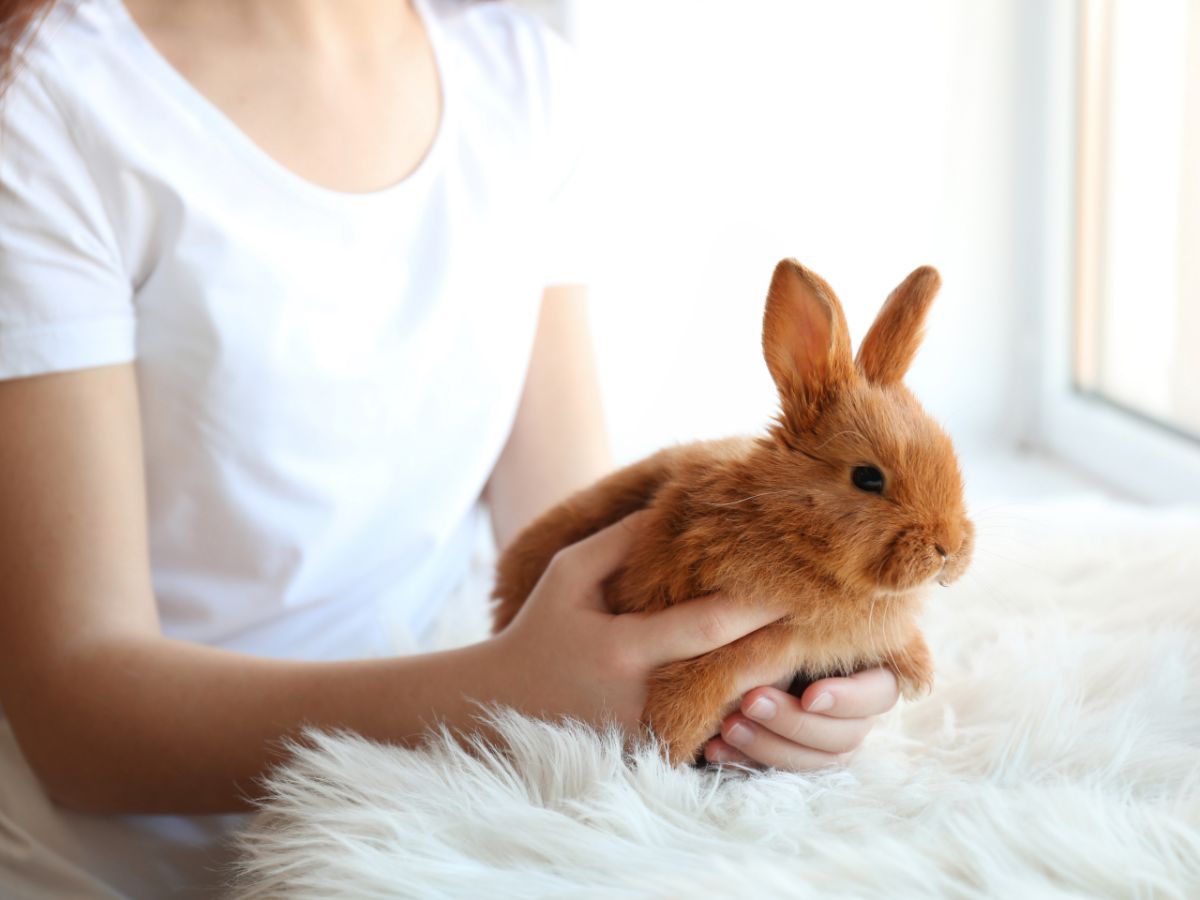Keeping a rabbit as a pet is a rewarding endeavor. Once you’ve spent time and energy constructing the perfect hutch and run, you’ll probably read up on rabbit behavior and what to feed them. Many books will recommend a balanced diet with roughage and leafy green vegetables. But what leafy green vegetables are they referring to? Do rabbits eat spinach? Or something else?
Rabbits readily eat spinach and seem to enjoy it. Although spinach contains the essential vitamins and roughage required for a rabbit’s wellbeing, spinach also contains poisonous chemicals. These chemicals are not harmful at lower levels but cause various issues through constant exposure.
A rabbit benefits from a well-balanced diet that provides them with various foods. Spinach is beneficial in small amounts, but how much is too much? Why is spinach beneficial? What are the signs and symptoms of too much spinach, and what else could you feed your rabbits?
Contents
Rabbits And Spinach, Facts Behind The Stereotype
Maintaining a healthy, nutritious diet is paramount to your rabbit’s longevity and wellbeing. You could attribute many complications and issues in rabbits to incorrect feeding.
Although leafy greens benefit rabbits, the bulk of their diet (80 to 90%) should consist of dry grass (long-stemmed fiber), particularly orchard grass, brome, oat, and timothy hay.
This roughage promotes healthy gut health by providing sufficient fiber and helping regulate digestive functioning.
However, fresh vegetables, fruits, and small amounts of pellets form part of a healthy balanced diet.
Regarding fresh vegetables, rabbits enjoy spinach, among other leafy greens.
Why Do Rabbits Like Spinach?
Rabbits are herbivores, meaning their diet consists of various plant parts. These parts include leaves, flowers, stems, fruit, and roots. Spinach is a vegetable that is safe to feed rabbits infrequently.
Due to their hind-gut digestive system and smaller size, rabbits tend to be voracious eaters. It won’t take rabbits long to find the delicious green-leafed spinach and devour it.
Even if rabbits prefer other vegetables over spinach, they are generally not overly picky eaters and enjoy a wide variety of plant parts.
Is Spinach Good For Rabbits?
Spinach in moderation is great for rabbits. It contains vitamin A, and it is a source of roughage.
Vitamin A (retinol) is essential for rabbits to maintain their condition. Vitamin A promotes healthy skins, coats, and immune systems. Vitamin A also plays a role in maintaining healthy eyesight.
The Benefits Of Feeding Your Rabbit Spinach?
Rabbits cannot synthesize vitamin A and obtain it from their food. Green leafy vegetables (like spinach) and grass hay are two critical sources of vitamin A for rabbits.
Aside from the vitamins and minerals, spinach also contributes to the roughage content of a rabbit’s diet. Roughage is critical for rabbits to maintain a healthy gastrointestinal tract and for digestion to function optimally.
What Amount Of Spinach Is Good For Rabbits?
Although rabbits love spinach, and it is good for them, you should not overfeed rabbits with spinach. You can feed rabbits spinach roughly once or twice a week.
Anything more than twice a week, and your rabbits might begin developing complications due to the oxalic acid found in spinach. Unfortunately, spinach is one of the vegetables that contain relatively high levels of oxalic acid.
Complications Of Feeding Your Rabbit Too Much Spinach
The most significant risk of overfeeding rabbits on spinach (more than twice a week) is the accumulation of oxalic acid. Oxalic acid is a chemical found in plants that protects them against insects and fungi (i.e., it’s the plant’s way of protecting itself from organisms that want to eat it).
While in small amounts, this acid has a negligible effect on the body. However, with prolonged exposure and ingesting higher concentrations, certain adverse effects develop, including:
- Tingling of the skin and mouth.
- A slight reduction in reproductive activity and success.
- Reduced growth rates due to the acid hampering the thyroid gland’s effectiveness.
- Kidney damage. As acid concentrations increase, calcium oxalate crystals begin developing in the kidneys. The kidneys are the most adversely affected organs by oxalic acid.
- Oxalate also binds to blood calcium. This bond leads to cardiac arrests and neurotoxicity.
It is essential to note that these and other issues only develop after prolonged exposure to the oxalic acid once the chemical has built up to toxic levels in the body.
The precious amount of oxalic acid within spinach leaves varies according to specific environmental factors, including:
- Chemical composition of the growing medium (typically soil).
- The growing season.
- How old the plant was when harvested.
The rabbit’s genetic make-up also determines its susceptibility to oxalic poisoning. Some rabbits have a much higher tolerance. However, those with kidney damage and disease and those already sick may be more susceptible to the acid at lower concentrations.
Although there is a risk involved with feeding spinach to rabbits when you feed spinach within the correct margin and as part of a healthy balanced diet, the risk is further mitigated.
Signs And Symptoms Of Oxalic Acid Build-Up In Rabbits
When rabbits consume too much oxalic acid in their food, they become poisoned. Before you start worrying about your rabbit, there are specific signs and symptoms of oxalic acid poisoning, including:
- Irritation of the eyes, skin, and respiratory tract. The rabbit might struggle with breathing if its throat swells.
- Excessive salivation is another sign.
- The rabbit will drink greater volumes of water (as the renal toxicity increases, the body tries to counteract the acid with more water).
- A reduction in the number of offspring.
- Younger rabbits don’t grow as well as they should.
- Rabbits begin to lose condition (they start losing weight and take on a gaunt look).
- Listlessness (no energy) and weakness develop. The rabbit no longer has its usual bounce and becomes withdrawn.
- Sensitivity in the abdominal area.
- Rabbits begin to eat less (appetite loss).
- In severe cases, rabbits can collapse, experience seizures, neurological degeneration, and death.
Many of these symptoms are not restricted to oxalic acid poisoning. So if you notice any of these, you should seek veterinary advice as soon as possible.
What Are Vegetable Alternatives To Feeding A Rabbit Spinach?
The most effective method of feeding rabbits is to keep all foods in moderation while striving for a balanced diet.
The table below examines which vegetables you could feed to your rabbit every day, which vegetables you should feed less frequently (once or twice a week), and those vegetables to avoid.
| Every day vegetables | Once or twice a week, vegetables | Think twice vegetables |
| Basil | Broccoli stems and leaves | Beans |
| Bell peppers | Carrot (the actual carrot) | Corn |
| Bok choy | Chard | Iceberg lettuce |
| Brussels sprouts | Clover | Potatoes |
| Carrot leaves | Dandelion leaves, stems, and roots | Onions and the onion family |
| Cilantro | Kale | |
| Cucumber (leaves and fruit) | Spinach | |
| Dill | ||
| Endive | ||
| Escarole | ||
| Fennel | ||
| Lettuce (romaine, green and red leaf, and Boston bibb) | ||
| Okra | ||
| Oregano | ||
| Parsely | ||
| Rosemary | ||
| Sage | ||
| Thyme | ||
| Watercress | ||
| Wheatgrass |
Rabbits require plenty of clean drinking water, and the bulk of their diet should be grass hay. Rabbits benefit from a varied, balanced diet, so swapping vegetables around on different weeks benefits your rabbit.
Conclusion
Although rabbits eat and enjoy spinach, you should not feed it to them more often than twice a week. Spinach is a sublime source of vitamin A and provides a degree of roughage. However, it also contains oxalic acid, which, in higher concentrations, becomes toxic inside a rabbit’s body. The splendiferous option for rabbits is feeding them a healthy balanced diet with plenty of water and grass hay.




